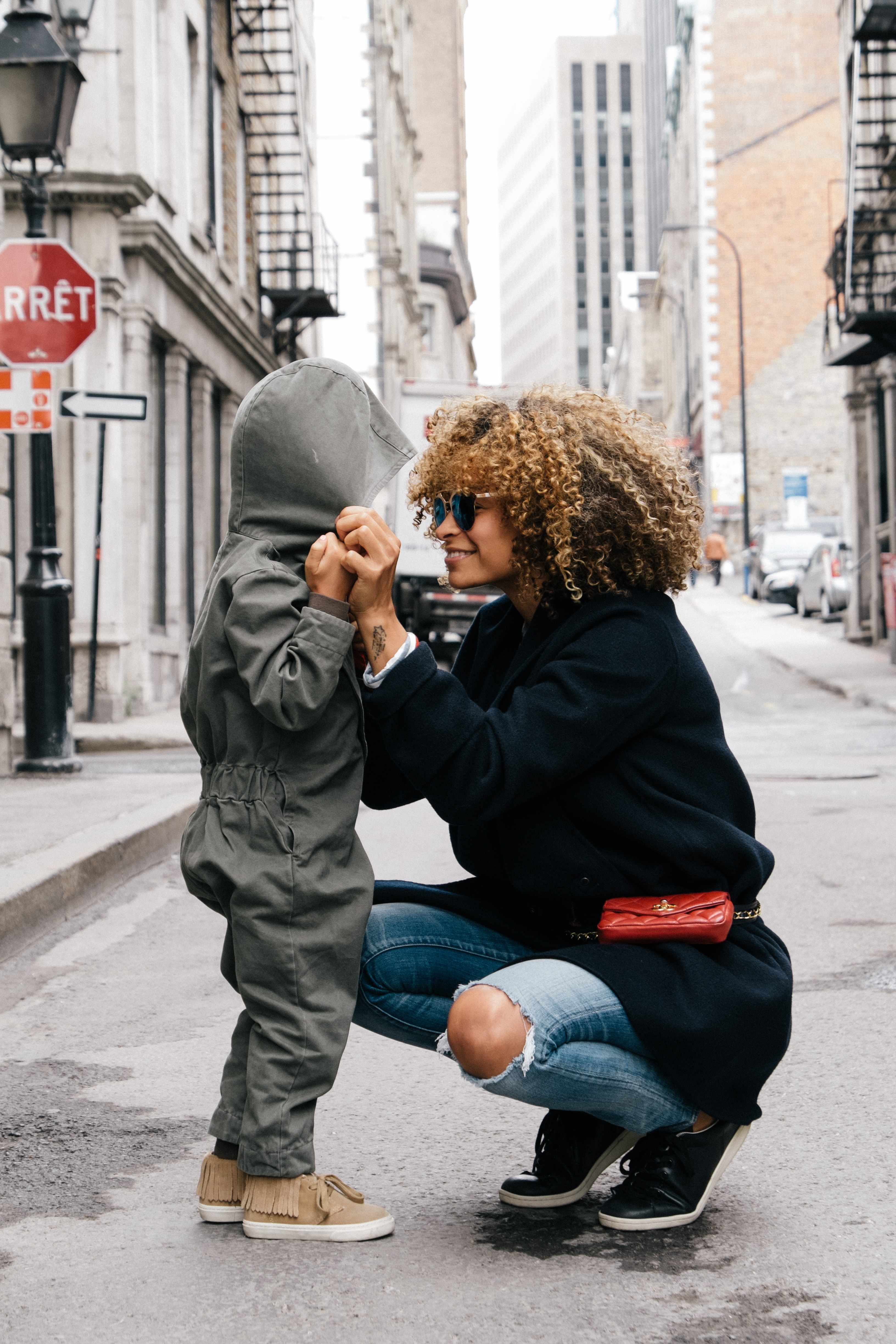 By Genevieve Simperingham
By Genevieve Simperingham
First published in The Natural Parent Magazine.
Does it sometimes feel like life would be a lot easier if you never had to say “no” to your child? Do you get exhausted by their constant needs and wishes? Or maybe you get frustrated that you can’t meet all their wants and needs while also keeping on top of everything else? Do you sometimes feel like a big meanie when saying “no” to what they want? Do you get annoyed at your child for always wanting more and not having enough appreciation for what they DO have?
Does your child get upset when you say “no”?
And is that sometimes upsetting for you? t’s understandable that children feel and express disappointment, sadness, anger or jealousy when they can’t have what they want. And it’s understandable that you saying “no” leads to a big upset. If a parent can hold steady and accept and even be supportive of their child when they’re upset, it often passes much faster. Yet when the parent is intolerant of their child’s upset reaction to the limit, things can go from bad to worse very quickly.
What you make it mean when your child gets upset.
The parent’s intolerance tends to stem from a combination of unhealthy core beliefs like “her being upset shows me she doesn’t respect me”, as well as the parent often struggling to cope with their own upset feelings that have been triggered! Truly examining your triggered feelings and core beliefs can lead to more clarity and inner strength to hold limits and boundaries even when your child isn’t happy about it. Arguments are prevented when a parent can stay relatively calm and communicate clearly and kindly without becoming reactive to their upset child.
Upsets in response to a limit can be a growth opportunity.
Not only is it ok that children feel and express big disappointment, frustration, sadness or anger when facing limitations, this process plays a huge part in their healthy emotional development. Supporting them through their huge disappointment when not allowed that second chocolate biscuit or new toy or screen time can provide preparation for life’s challenges. If they can later bear the pain of humiliation, rejection or loss as a teenager, they’re dramatically less likely to make unhealthy or dangerous choices. Our children need us to be strong, calm and caring at times of upset when they can’t have what they want. They may not be allowed those biscuits but they definitely should be allowed to be upset about it! But what if they keep asking? They likely will as long as their craving is still strong. When we show them that it’s ok and understandable that they’re upset, this shows them that emotions are not to be feared.
Loving limits are about expressing heartfelt empathy while also being clear and confident in expressing the limit.
If we’re vague or give conflicted messages, we prolong their agony by keeping them stuck in the place of hoping and pleading and resenting. The sooner they can come to terms with the limit and express their “tears of futility” (as Gordon Neufeld terms it), the sooner they can empty out all that disappointment and gain relief. This is how we help them develop self-discipline. This is how we empower them to know it’s ok and healthy for them to say “no” to others, to hold healthy boundaries in life.
Our children tend to feel dramatically more motivated to follow our lead when we lead with clarity, confidence and kindness.
What doesn’t work?
In reality, life isn’t easier for the parents who go to extraordinary lengths to avoid saying “no”. Or certainly not in the long run. In fact, when parents don’t hold healthy boundaries, they are denying their child the opportunity to discover that they can survive those feelings of disappointment. The child is prevented from learning to tolerate and manage the frustrations of unsatisfied desires if parents always give them what they want. Children will always “push the limits” because they need our help coming to terms with life’s limitations. They need our genuine heartfelt empathy when they struggle with not being allowed to go on the screen or eat that sugary food or have that new toy. Many parents had the “like it or lump it but that’s just how things are kiddo” kind of “help” to accept limits and rules as children. This not only doesn’t help children build their emotional muscles and inner strength, it causes shame and a kind of emotional hardening and disconnection. Both of these approaches, the permissive or the authoritarian, can result in stunted emotional development and lead to a whole host of problems later in life.
You might also like to read: Does your child take you seriously when you express a limit? In it Genevieve talks about her process of developing the inner clarity and strength needed to stay calm and level when expressing a limit or request that her child might not like.
You might also like to read: The importance of maintaining Healthy Boundaries in the Family.
It takes children many years to develop impulse control.
Children can feel their emotions with an intensity which is very hard for them. Healthy emotional development depends on gaining confidence that they can survive feeling and expressing those big feelings. That the relationship with their parent can survive the child feeling and expressing big upsets. When our child is upset because they can’t have that which they desire, it can seem in the heat of the moment that the only solutions are to either give in and give them what they want, to offer them something else which will stop their upset or to get stern and make it clear that they must stop demanding and complaining or else!
The formula for success.
What’s actually needed is for the parent to ….
- manage any stress and upset they themselves are feeling,
- to express the heartfelt empathy that allows the child to feel and journey through their emotions until they’ve got it all out of their system and
- hold steady with the limit (assuming it’s a fair and reasonable limit).
Any and all attempts by the parent to stop their child expressing their upset tends to result in another upset happening before too long. “So I simply listen and empathize until my child is no longer upset?” Yes, that’s exactly what’s needed as often as is practically possible to achieve! But doesn’t this train them to just cry and complain all the time? Actually, the opposite tends to be true. Children who truly get their painful emotions out of their system tend to overall become much more secure, settled and resilient. Yet in my years of helping parents, this simple (in theory!) process is one of the hardest things for parents to possibly achieve on a consistent basis!
The main causes of arguments and power struggles tend to be;
- Reasoning with an upset child who can’t reason when upset. Our child doesn’t need to agree with our decision, but they do need to see that we’re very clear about it and are truly caring for them.
- Parents being cold or punitive towards children if they get upset about their unfulfilled desires. This can cause children to feel ashamed and incompetent.
- Being overly permissive. This gives children the unhealthy and untrue message that others should give them everything they desire or allow them to behave however they want. Being permissive can fail to help a child understand how their actions impact others. Permissive parenting denies the child the opportunity to develop self-discipline and encourages a distorted sense of entitlement.
- Giving mixed messages, saying “yes” when we want to say “no” or “no” when we want to say “yes”. This leads to confusion, resentments and much parent-child tension.
- Interpreting the child’s upset in response to a limit as “disrespect” or being “spoiled”. This judgment breaks down the parent-child connection and gives the child even more reason to be upset.
- Parents lacking respect and value for their own needs and limitations. This conveys the unhealthy and untrue message that the parent’s needs are not important.
- Parents harshly judging the child’s upsets and having unrealistic expectations of their child to cope better than they do.
- Imposing consequences to deny children what they want is unnecessary and causes them to associate limits with punishments. Children need to trust that their parent is being fair and caring when holding limits.
But my child’s demands are so excessive!
Excessive craving for food or entertainment can happen when children carry excessive frustration from the buildup of unresolved feelings or the habit of being placated with food or entertainment. This leads to a vicious cycle of kids being overly demanding and parents either giving in despite their values or being reactive, or both. However, children who are truly supported to cry, complain and vent to get their upsets out of their system don’t tend to look for treats or distractions. Children who feel held and secure while they express their upset feelings when things don’t go the way they had hope are also dramatically less likely to resort to aggression.
Aggression is a desperate attempt to gain relief from an intense buildup of frustrations.
To further understand the vicious sugar and process food craving cycles, you can read my natural parent magazine article entitled “the food mood connection and sugar cravings”. Or to understand the negative impacts of too much screen exposure, read my natural parent article; “What every parent needs to know about kids and screens”.
What makes it so hard for parents to remain calm when their child is upset that they can’t have what they want?
In reality, most parents are incredibly uncomfortable with their child crying. If the parent’s own parents were intolerant of their upsets when they were a child, if they didn’t gain the empathy they needed, they likely still have a lot of inner conflict around strong emotions. If a parent has lost or never gained the positive associations around crying, they tend to see the crying to be a problem that needs to be fixed. They’re also more likely to feel judged, blamed or manipulated by their child being upset.
On the other hand, the parent who either gained the permission and emotional support they needed when they got upset as a child, or has since learned to meet those needs as an adult through therapy or a listening partnership will have a strong internalized understanding that expressing upsets is a normal, natural, healthy and necessary process that brings people back to balance.
The more you experience the benefits of releasing cries in a safe environment yourself, the more you’ll want the same positive benefits for your child. The more capacity you develop for your own emotional pain, the more capacity and empathy you’ll have for your child’s upsets.
When my then 6y.o. daughter couldn’t attend her friend’s birthday party.
When my daughter was six, I remember her being incredibly sad when she couldn’t attend her close friend’s birthday party because she was sick. She was beginning to come to terms with it when all the kids from the party, including her best friends, arrived to play at the playground directly opposite our house! I know! It was so painful for her to be missing out on all that fun. I remember us sitting together on the couch upstairs looking over the road as her friends played and my girl having huge cries.
What stands out is that she didn’t demand something sugary, or a treat or to watch tv. She didn’t blame anyone or try to just run out the door. Despite her big grief, she didn’t fight it, she could allow those big tears. It’s been such a good feeling as a parent to know that my children have grown up with a trust that the feeling and expressing of the pain is the solution, is what’s needed to feel good again. And consequently, they’ve been able to avoid resorting to the more unhealthy outlets.
When each day brings unavoidable conflicts of wants and needs among family members
It’s nearly impossible for a parent to gain inner clarity and peace of mind on every single question and decision that the day brings. A certain amount of all that pressure to make the right decisions and be as fair as possible is going to spill over and result in messy interactions. Yet the more mindfully aware we become of our feelings in these situations, the better we get at stopping, slowing down and taking that deep breath before responding.
Genevieve Simperingham is a Psychosynthesis Counsellor, a Parenting Instructor and coach, public speaker, human rights advocate, writer and the founder of The Peaceful Parent Institute. Check out her articles, Peaceful Parenting eCourses, forums and one-year Peaceful Parenting Instructor Training through this website or join over 90,000 followers on her Facebook page The Way of the Peaceful Parent.









